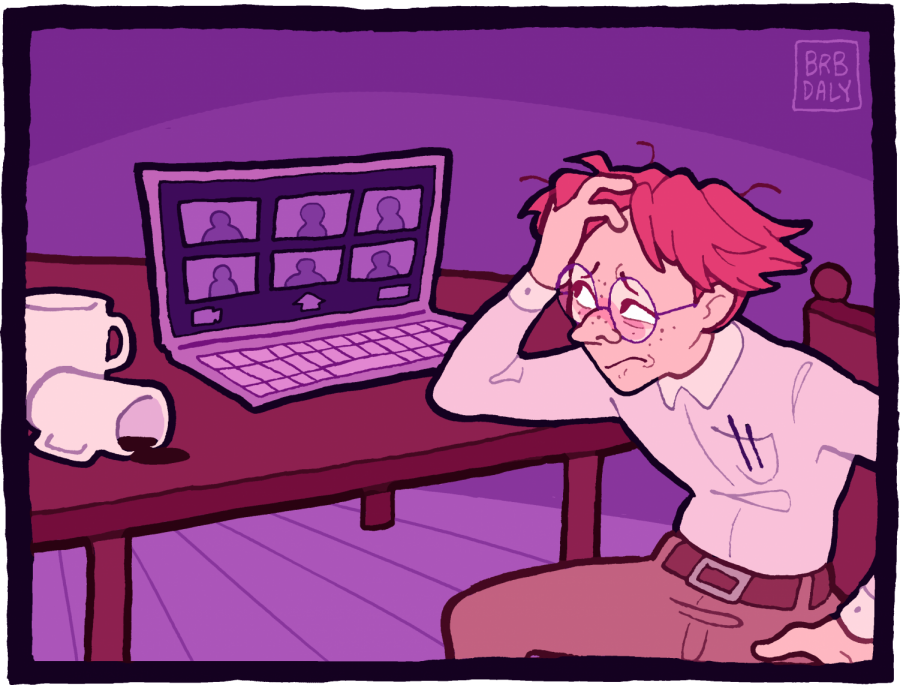Teaching assistants navigate virtual schooling, support students
April 16, 2021
After staring at her Zoom screen for two hours, Klara Fredriksson stood up to make coffee. When she came back, a student had popped up on her screen and was waiting for her.
“I was like, ‘Oh, I’m sorry,”’ Fredriksson said. “That’s definitely a new kind of struggle with Zoom. … I think it’s easier when you can see someone physically next to you.”
As a Ph.D. student and teaching assistant for American government, Fredriksson holds office hours on Zoom for three hours a week. Many TAs at UT such as Fredriksson adapted to today’s virtual reality by adjusting their tactics.
“I don’t know what most of my students look like, which is a little bit of a bummer,” Fredriksson said. “You don’t really have any personal connections. Whatever they’re confused about (or) if they just want reassurance about the class — those things are easier to pick up in person.”
Stephanie Jbeily, a human dimensions of organizations sophomore, said she feels more comfortable admitting to a TA when she is overwhelmed rather than a professor.
“I think the role of a TA has changed by becoming more supportive,” Jbeily said. “(I’m) like, ‘Hey, I’m super stressed out, these assignments are so much work, my technology is being crappy and I’m struggling to do well.’ (TAs) can actually put themselves in the situation that we’re in right now. They are more understanding.”
Jbeily said she noticed some of her peers are resistant to talk to TAs or ask for their support. She encouraged students to start using TAs more as a resource.
“I think it’s a pride thing of like, ‘There’s no way someone our age or someone who’s a little older than us could help us,’” Jbeily said. “But I think it’s completely OK to go to your TA, because that means you actually want to learn the material.”
Operations management TA Rachel Shen said during the pandemic she helps professors write lectures, create homework assignments and answer questions from students.
“I can still do my job just as well, whether I’m perfectly healthy or … have to compensate for any unexpected happenings in life,” said Shen, a supply chain management and international relations and global studies senior.
Fifth-year linguistics TA Jack Thielman said he encountered the challenge of teaching public speaking over Zoom.
“(The students) need to do a persuasive speech to try and win people over — it is much different (and) much harder (over Zoom),” Thielman said. “It is not natural, frankly. Trying to figure out how to coach people (has) been different and difficult, because a lot of the rules of traditional oratory have to be tailored to stay relevant at all.”
As the end of the spring semester approaches with exams, projects and grades, Fredriksson said she hopes students know TAs want to help them.
“(Some students) would prefer to just suffer in silence forever rather than talk to someone,” Fredriksson said. “We are trying to make you pass the class. We are on your side.”



